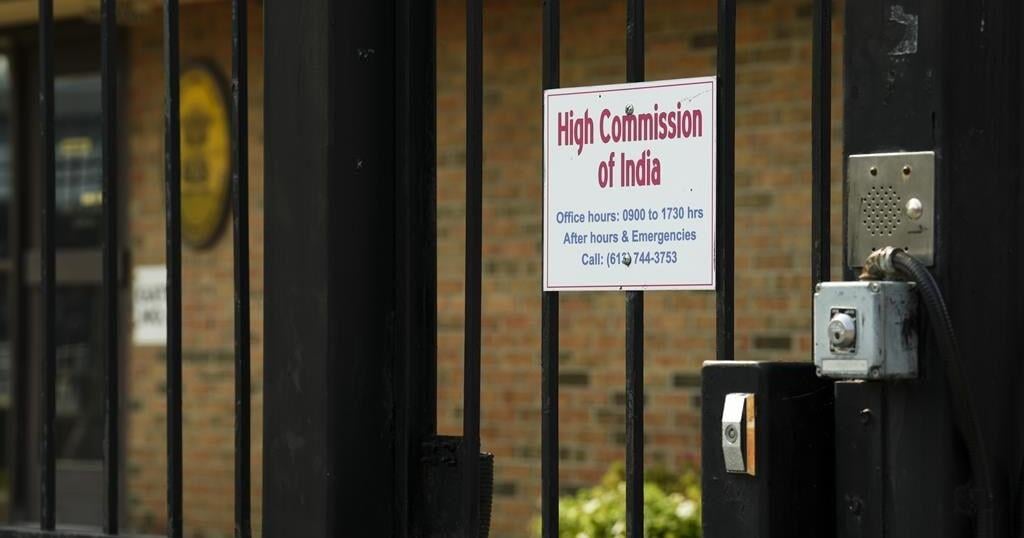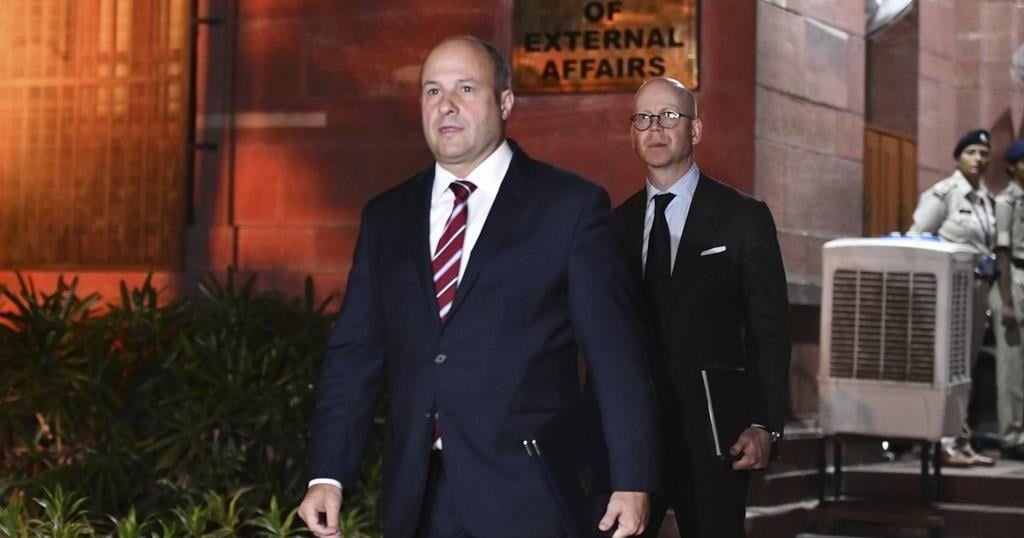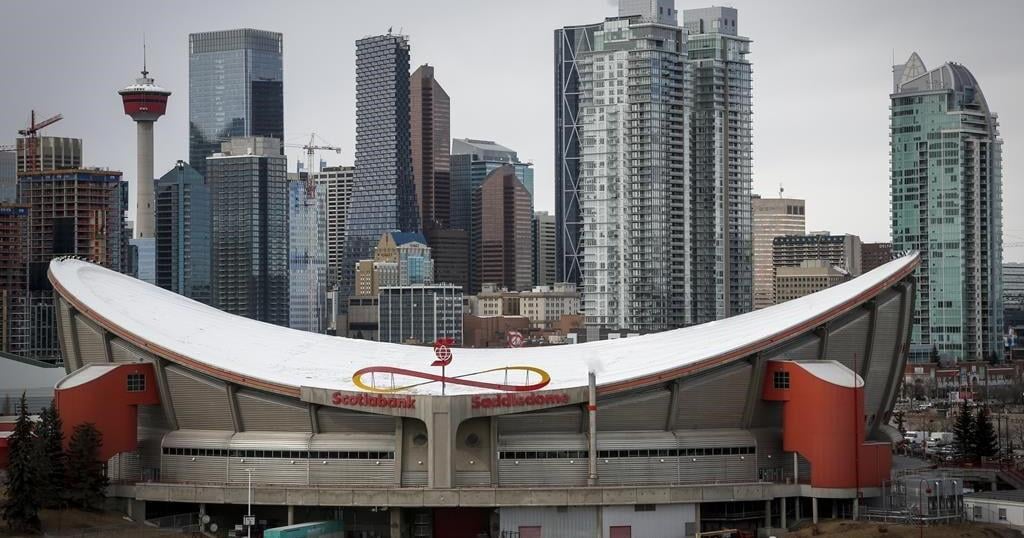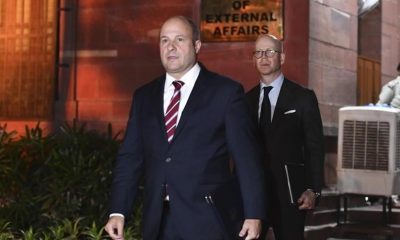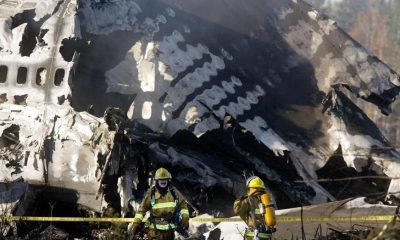OTTAWA – Accusations of widespread murder, extortion and coercion across Canada linked to agents of the government of India sparked an escalation of already strained diplomatic tensions Monday, as each country expelled six diplomats.
Canada declared six Indian diplomats, including the high commissioner, persona non grata after RCMP and other government officials told India its diplomats were persons of interest in several investigationsinto violent crimes in Canada.
India swiftly retaliated by ordering six Canadian diplomats to leave the country by Saturday.
The RCMP tells The Canadian Press it is investigating three homicides across Canada over the last two years with possible links to India, but would not clarify if that includes the high-profile killing of pro-Khalistan activist Hardeep Singh Nijjar last year.
Prime Minister Justin Trudeau said New Delhi has tried to undermine Canadian institutions instead of helping resolve these criminal cases.
“No country, particularly not a democracy that upholds the rule of law, can accept this fundamental violation of its sovereignty,” he told reporters on Parliament Hill.
“We will never tolerate the involvement of a foreign government threatening and killing Canadian citizens on Canadian soil.”
RCMP Commissioner Michael Duheme told a news conference in Ottawa that the force decided to take the “extraordinary” step of warning the public after Indian government officials refused to co-operate in their investigation of the threats.
“It’s not our normal process to publicly disclose information about ongoing investigations in an effort to preserve their integrity,” Duheme told reporters. “However, we feel it is necessary to do so at this time due the significant threat to public safety in our country.”
Duheme said Canadian law enforcement, including the RCMP, have investigated and charged people in homicides, extortions and other criminal acts. He added there have been well over a dozen credible and imminent threats that have resulted in police warning members of the South Asian community, notably the pro-Khalistan movement.
India is a staunch opponent to the Khalistan separatist movement, in which some Sikhs advocate for an independent state called Khalistan to be carved out of Indian territory.
India says the prospect is unconstitutional and threatens the country’s national security. Ottawa has long stressed that it upholds India’s territorial integrity but won’t crack down on freedom of expression in Canada.
The RCMP commissioner said Monday that investigations revealed that Indian diplomats and consular officials based in Canada leveraged their official positions to engage in clandestine activities, including collecting information for the government of India, either directly or through proxies.
“Evidence also shows that a wide variety of entities in Canada and abroad have been used by agents of the government of India to collect information,” Duheme said, including some people and businesses that were allegedly coerced and threatened into providing information used to make threats.
In February 2024, a unit was formed to investigate the threats.
“The team has learned a significant amount of information about the breadth and depth of criminal activity orchestrated by agents of the government of India and consequential threats to the safety and security of Canadians and individuals living in Canada,” Duheme said.
“Despite law enforcement action, the harm has continued, posing a serious threat to our public safety.”
RCMP assistant commissioner Brigitte Gauvin said the service has so far arrested and charged eight people with the homicide cases, and 22 more people have been charged with extortion.
The alleged crimes of extortion have taken place across Canada, but mainly in B.C., Ontario and Alberta.
Duheme said the force felt compelled to confront the government of India and to inform the public about its findings, but attempts to have discussions with Indian law enforcement were unsuccessful, he added.
Canada asked New Delhi to waive diplomatic immunity for the Indian officials in Canada, which would have allowed the RCMP to interview them, Foreign Affairs Minister Mélanie Joly said Monday.
When India refused, Canada expelled the diplomats.
New Delhi rejected the allegations, and called the Canadian government’s claims preposterous. India’s ministry of external affairs said it had been informed Sunday that some of its diplomats were “persons of interest” in an ongoing investigation including its high commissioner, a title for an ambassador within Commonwealth countries.
The ministry claimed that the Canadian government has not shared a “shred of evidence” since Trudeau rose in the House of Commons in September 2023 to announce that investigators had credible intelligence linking India’s government to the shooting death of Nijjar.
Relations between the two countries have been strained since.
“The violence actually increased following the allegations a year ago,” Joly said. She has reached out to Canada’s peers in the Five Eyes intelligence alliance.
Trudeau had a brief exchange with Indian Prime Minister Narendra Modi at the ASEAN summit in Laos last week. Trudeau said Monday that he stressed to Modi the seriousness of the situation, and that Canada needs New Delhi’s co-operation in the criminal probes.
Canada sent senior security officials to meet their Indian counterparts in Singapore this past weekend “to share RCMP evidence which concluded six agents of the government of India are persons of interest in criminal activities,” Trudeau said.
“The government of India made a fundamental error in thinking that they could engage in supporting criminal activity against Canadians here on Canadian soil, whether it be murders or extortion or other violent acts,” he said.
India said Monday that it was withdrawing six of its diplomats, including its high commissioner in Canada. But Canada said India’s statement only came after Ottawa had declared high commissioner Sanjay Kumar Verma and five other diplomats persona non grata.
“Canada has done what India has long been asking for,” Stewart Wheeler, Canada’s acting high commissioner in India, told local media in that country.
“Canada has provided credible, irrefutable evidence of ties between agents of the government of India and a murder of a Canadian citizen on Canadian soil.”
He and his colleagues have been given until next Saturday to leave India.
Conservative Leader Pierre Poilievre called the RCMP’s allegations “extremely concerning,” and levied his own accusations at Trudeau and his government for not taking national security and foreign interference seriously.
“Because of that, Canada has become a playground for these activities,” Poilievre said in a statement Monday.
The federal NDP called for sanctions against India and said in a statement Monday that Canada must “commit to pursuing the most severe consequences for anyone found to have participated in organized criminal activity on Canadian soil.”
B.C. Premier David Eby, who is now in an election campaign, said Monday that he is “profoundly disturbed” by the RCMP’s revelations, which he called “unprecedented.”
He said Deputy Prime Minister Chrystia Freeland and Public Safety Minister Dominic LeBlanc assured him that “those involved are held responsible.”
This report by The Canadian Press was first published Oct. 14, 2024.
— With files from Sidhartha Banerjee and Darryl Greer

